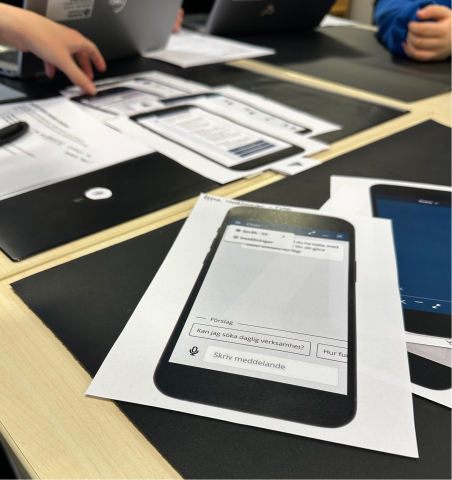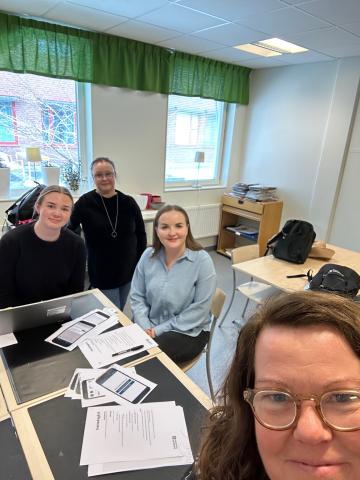Skellefteå tests Skebot AI & develops AI for special needs
ENAIBLER project partner Skellefteå Kommun (Sweden), is making progress with the use of artificial intelligence (AI) to help both staff and citizens. The municipality has been testing Skebot, an AI assistant developed by a team including the Department of Social Services, IT and Business Development, the Department of Information, and an external company. The aim is to make daily tasks easier for staff by quickly providing answers and helping them find the right information on the intranet.
Skebot was first tested for two weeks in the Department of Social Services, where employees often found it hard to locate the right information. Traditional search engines needed very specific keywords, making it difficult to find things like policies, checklists, and procedures. Skebot helps by understanding simple questions and gathering information from different sources, making it quicker and easier to get the answers staff need.
Due to positive feedback from the trial, Skellefteå Kommun has decided to extend the test of Skebot to the whole municipality. Over the next four weeks, the AI assistant will be tested on two areas of the intranet. After the trial, the team will review the results and decide what to do next.
In addition to Skebot, Skellefteå Kommun is leading another project aimed at helping people with special needs, particularly those with intellectual disabilities, to access municipal information online. The project, called Developing an AI User Interface for People with Special Needs, is a collaboration with the municipalities of Gothenburg and Jönköping, as well as the research institute RISE. The project uses generative AI to make it easier for people with disabilities to find relevant information on public authority websites.

The first stage of the project focused on gathering feedback from people with special needs. Participants from the three municipalities took part in workshops to discuss the challenges they face when searching for information and ways to improve access to municipal services. The results have been used to create a list of important factors for developing AI tools that meet the needs of people with intellectual disabilities.
This spring, the project has moved into the design stage, and a prototype is being developed. The target group will test the prototype later this spring.
The project has received a lot of attention both in Sweden and abroad. Skellefteå Kommun has been invited to present their work at a conference in Florida (USA) this summer and has also received invitations to speak at national conferences and collaborate with other AI projects focused on accessibility.
Through these two projects, Skellefteå Kommun is not only advancing AI technology but also making sure it is accessible to everyone, improving services for both staff and citizens.


